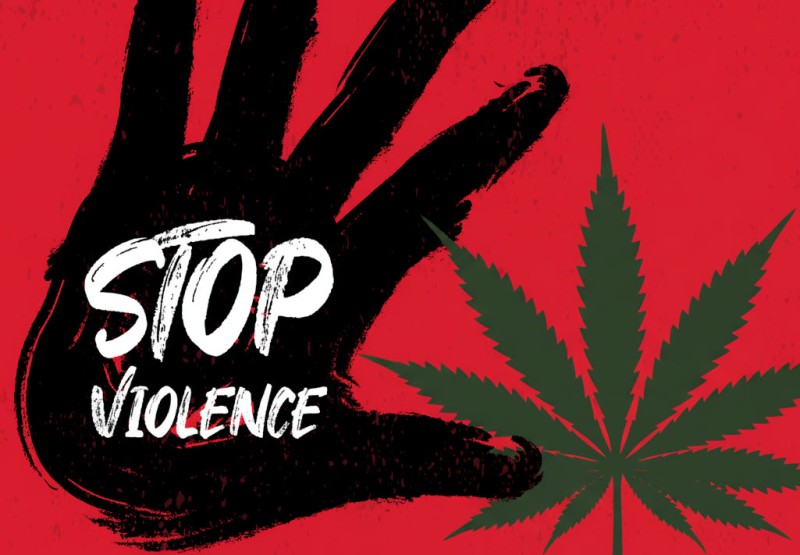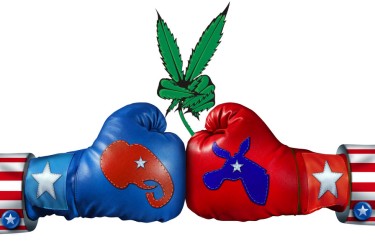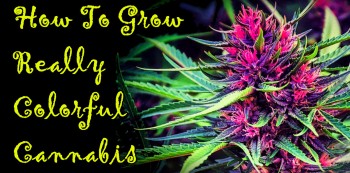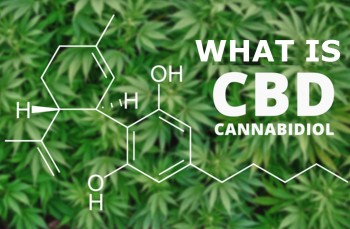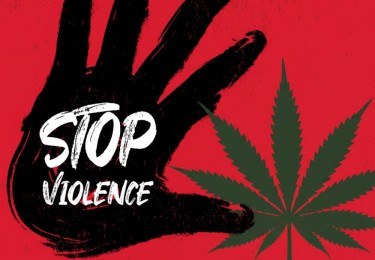
Here we go again. Another mass shooting, another tragic loss of life, and right on cue, the media starts digging through the shooter's background looking for easy explanations. In the case of Joshua Jahn, the 29-year-old who opened fire on migrants at a Dallas ICE facility before killing himself, they found their convenient narrative: he was a "lazy stoner" who "was all about the weed."
I can already see where this is headed. Despite decades of research showing no causal link between cannabis use and violence, despite the fact that cannabis users are statistically less likely to commit violent crimes than non-users, we're about to watch prohibition advocates weaponize this tragedy to push their agenda.
Let me be absolutely clear before the narrative gets away from us: cannabis did not make Joshua Jahn shoot people. Whatever demons drove him to commit an act of targeted political violence had nothing to do with the plant he occasionally consumed and everything to do with factors we're far less comfortable discussing as a society.
The New York Post's characterization of Jahn as a "pot-obsessed slacker" who relocated to Washington to work on cannabis farms tells us almost nothing useful about why he became a mass shooter. It's lazy journalism that substitutes correlation for causation and provides readers with a false sense of understanding. We understand violence better when we can reduce it to simple explanations like "he smoked too much weed" rather than confronting the complex psychological, social, and political factors that actually motivate people to commit atrocities.
What we do know is this: Jahn was someone with a documented history of issues, who gained significant weight, who his former employer described as "probably being miserable," who left anti-ICE messages on ammunition and wrote notes about terrorizing federal agents. These are signs of someone experiencing severe psychological distress, political radicalization, and suicidal ideation – not someone who smoked too much cannabis.
Before anyone tries to make this about cannabis, let's talk about what actually motivates violence and why scapegoating a plant is easier than addressing the real problems.
What Actually Drives Mass Violence
Research into mass violence and targeted attacks reveals complex motivational factors that have nothing to do with substance use. According to studies from the FBI's Behavioral Analysis Unit and terrorism researchers, people who commit acts of mass violence typically exhibit several common characteristics:
-
Perceived Grievances and Ideological Motivation: Most mass shooters believe they've been wronged by a system, group, or institution. They develop narratives where violence becomes justified as a response to perceived injustice. Jahn's anti-ICE messaging clearly indicates he viewed immigration enforcement as a legitimate target for violence – this is ideological motivation, not cannabis intoxication.
-
Social Isolation and Failure to Thrive: Research consistently shows that mass shooters often experience social disconnection, employment struggles, and feelings of personal failure. Jahn's former employer described him as someone who "didn't have any direction, any work" and later "ballooned up in size" while "being miserable." These are warning signs of depression and social isolation, not cannabis use.
-
Suicidal Ideation: Many mass shooters are essentially committing "suicide by cop" – they plan to die during their attack. Jahn turned the gun on himself, suggesting this was as much about ending his own life as causing harm to others. Cannabis users actually show lower rates of completed suicide compared to non-users.
-
Access to Means: The availability of firearms and tactical knowledge enables violence. Jahn had experience with weapons and the skills to execute his attack. Cannabis availability has nothing to do with this.
-
Crisis Points and Triggering Events: Mass violence often follows personal crises or specific triggering events. We don't yet know what immediate factors pushed Jahn to act when he did, but it wasn't cannabis – which he'd been using for years without committing violence.
What's notably absent from research on mass violence? Cannabis use as a causal factor. In fact, studies consistently show that cannabis users are less likely to commit violent crimes than alcohol users or non-substance users. A 2018 study published in Psychological Medicine found no association between cannabis use and violent behavior when accounting for other factors.
The National Academy of Sciences comprehensive review of cannabis research found "limited evidence of a statistical association between cannabis use and the development of depressive disorders" but no credible evidence linking cannabis to violence. If anything, cannabis is associated with decreased aggression.
Compare this to alcohol, which is involved in approximately 40% of violent crimes according to the National Council on Alcoholism and Drug Dependence. Alcohol pharmacologically reduces inhibitions and increases aggression. Cannabis does the opposite – it generally reduces aggressive impulses and promotes relaxation.
The attempt to connect Jahn's cannabis use to his violent acts is scientifically baseless. It's the equivalent of noting that he ate bread and suggesting carbohydrates caused the shooting. Yes, he used cannabis. He also drove a Toyota Corolla – should we blame Japanese automakers?
What actually drove Jahn to violence was likely a combination of ideological radicalization, personal failures, social isolation, psychological distress, and access to weapons. These are uncomfortable topics requiring nuanced understanding. Blaming weed is just easier.
What His Violence Actually Accomplished (Spoiler: Nothing Good)
Let's examine what Joshua Jahn's act of violence actually achieved, because understanding the futility of these actions matters.
-
Body Count: One migrant killed, two others wounded, and Jahn himself dead. Four lives destroyed or forever altered. The migrant who died wasn't an ICE agent – just someone caught in Jahn's line of fire while seeking to navigate America's immigration system. Whatever political statement Jahn thought he was making, he achieved it by killing someone who had no power over immigration policy.
-
Policy Impact: Zero. Did Jahn's attack change ICE operations? No. Did it reform immigration policy? No. Did it spark meaningful national conversation about immigration reform? Also no. What it did do is provide ammunition (literal and figurative) for people who want to paint immigration reform advocates as dangerous radicals.
-
Movement Damage: Jahn's actions actively harmed whatever cause he thought he was supporting. Immigration rights advocates immediately had to distance themselves from violence they never condoned. Every organization working for humane immigration policy now faces questions about whether they inspire dangerous extremism. This is the opposite of effective activism.
-
Media Narrative: The story became about a "lazy stoner" shooter rather than substantive immigration policy debates. Jahn transformed himself from a person with concerns about ICE into a cautionary tale about radicalization. His message, whatever it was, got lost entirely.
-
Security Theater: The predictable response will be increased security at ICE facilities, more restrictions, more surveillance, more hardening of exactly the systems Jahn apparently opposed. Violence begets security responses that make systems more rigid, not less.
-
Cannabis Stigmatization: As we're seeing, Jahn's cannabis use became a focal point for media coverage, potentially reinforcing outdated stereotypes and providing fodder for prohibition advocates. This harms millions of responsible cannabis users who have nothing to do with violence.
The cruel irony is that meaningful change in immigration policy has come through advocacy, litigation, legislation, and public pressure – never through violence. Organizations like the ACLU, immigrant rights groups, and reform advocates have achieved actual policy changes through legal and political channels. Jahn's approach accomplished nothing except tragedy.
This pattern repeats across all forms of ideologically motivated violence. Whether it's abortion clinic bombings, eco-terrorism, or anti-government attacks, violence consistently fails to advance the stated cause while providing ammunition to opponents. The Oklahoma City bombing didn't inspire anti-government reform – it led to increased federal law enforcement powers. The Unabomber's manifesto didn't stop technological progress – it made him a murderer whose ideas became impossible to discuss seriously.
What Jahn demonstrated is what research on terrorism consistently shows: violence by individuals or small groups against symbolic targets doesn't create political change. It creates revulsion, backlash, and entrenchment of existing systems.
If Jahn genuinely cared about immigration reform, he could have volunteered with advocacy organizations, contacted elected officials, participated in legal protests, or worked to elect reform candidates. These approaches are boring, slow, and don't satisfy impulses toward dramatic action. But they actually work, which violence doesn't.
Let Them Make This About Cannabis
As the full story of Joshua Jahn emerges, we're going to hear attempts to connect his violence to cannabis use. Don't fall for it.
Jahn's actions stemmed from a toxic combination of ideological radicalization, personal failures, psychological distress, and access to weapons. His cannabis use is as relevant to understanding his violence as knowing his shoe size or favorite food. Research consistently shows no causal link between cannabis and violence, and attempting to create one in this case is scientifically dishonest.
Was Jahn a cannabis user? Yes. Was he also someone experiencing obvious psychological distress, gaining weight, described as miserable, socially isolated, and ideologically radicalized? Also yes. Which of these factors is actually associated with violence? Not the cannabis.
The real questions we should be asking are: How do we identify people experiencing the kind of crisis that leads to violence? How do we intervene before ideology transforms into action? How do we address the social isolation and personal failures that create vulnerability to radicalization? How do we prevent people in psychological crisis from accessing weapons?
These are hard questions without easy answers. Blaming cannabis is easy but wrong.
Whatever political motivations drove Jahn, whatever personal demons haunted him, whatever crisis point pushed him to violence – none of it had anything to do with the plant he consumed. Cannabis didn't make him kill anyone. His own choices, psychology, and circumstances did that.
Don't let prohibition advocates weaponize this tragedy. Cannabis didn't cause this violence, and pretending it did only prevents us from addressing the real factors that actually matter.

